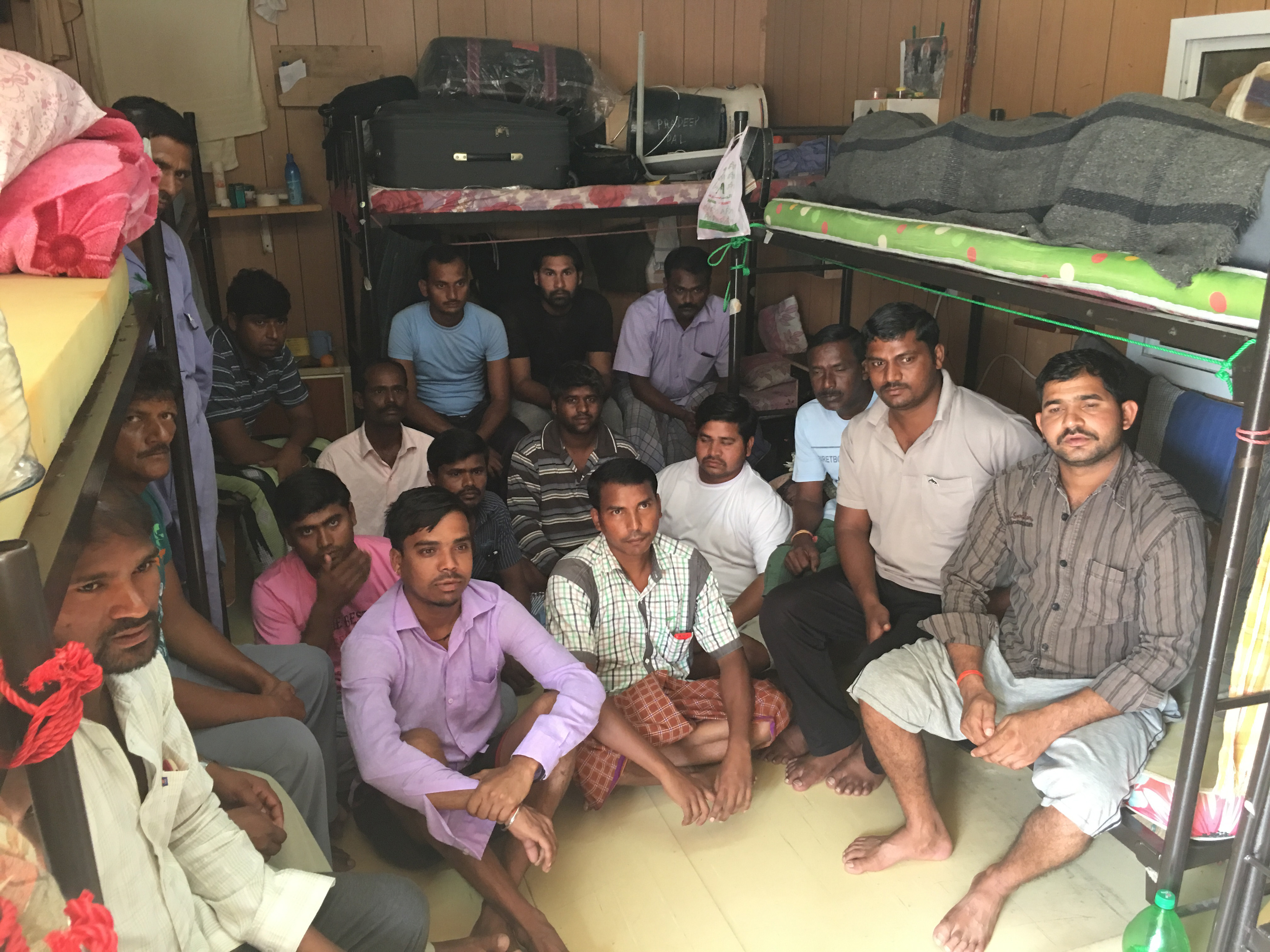
Muscat: Hundreds of stranded expatriate blue-collar construction company workers couldn’t celebrate Eid Al Adha or Onam (Indian harvest festival) this year like others in Oman.
While others had remitted money to their dear ones at home for the festival, purchased new clothes and had a feast, stranded blue-collar workers in different parts of Oman were seen sitting idle at their camps with little food and no money.
“Holy Ramadan, Eid Al Fitr, Eid Al Adha, Onam... festivals are passing one by one. We are just sitting idle at our camps without any celebrations. We can adjust... but how about our family. Back home children are asking for new dress and good food. We couldn’t provide them anything this year,” workers, who have not gotten five months’ salary from a construction company camp in Jifnain, told the Times of Oman.
Due to the slump in global oil prices, many companies in Oman do not have enough projects and are also being hurt by the delay in getting bills cleared and other operational hassles.
“Around 80 workers are stranded in this camp. Leave feast and celebrations; sometimes, medical needs and decent food is also a problem for us,” said the workers, who no longer have valid labour cards as the company had failed to renew them on time.
The case of workers at Jifnain camp’ case is not an isolated one.
In Muscat, around 25 workers in Al Khoud and a dozen of workers in Sawadi are also facing the same situation after their company failed to pay their salaries for the last few months.
“We came to work here. We are the sole breadwinners of our family. We are ready to adjust.
But what should we tell our families. They are struggling like us. Living without a salary for five months is an unimaginable situation. My son has been removed from his college due non-payment of fee,” a stranded worker in Al Khoud said.
Workers stranded at the resort in Sawadi after their owners stopped operations are also facing a similar situation.
“We don’t even have power supply. We were depending on generators. Lack of money to buy fuel is a trouble all the time. Then think about Eid-Al-Adha celebrations. It is a tough time. Family back home is also facing the same situation,” a worker from the resort said.
The workers there have filed a claim for pending salary and other benefits in court.
“The latest is that the employer has filed an appeal against the verdict, which was delivered in our favour recently. It means that our struggle won’t end soon,” the workers added.
Mohammed Khaldi, a trade union leader in Oman, said the situation is worrisome.
“The religion teaches us that workers should be paid before his sweat dries up. Why are the companies not doing so? The authorities concerned should intervene and resolve the issue as early as possible. Workers cannot be left in lurch,” the trade union leader, who has sent support from his team for the stranded workers, said.
Article 51 of the Oman Labour Law says employees who receive their salaries on a monthly basis shall be paid once a month at least.
Prasad M K, a legal advisor in Muscat, said employers are bound to pay a salary every month if the job contract cites monthly payment and the worker has the right to lodge a complaint or to stop working if the employer fails to follow the signed job contract created on the basis of Oman Labour Law.
Meanwhile, a social-cultural charity group in Muscat said they have distributed food packets among low-paid workers in different parts of Oman.
The group, which didn’t wanted to be named, said they have a network all over Oman and the food packets were distributed on Eid-Al-Adha among the workers.
“Bringing them all to one place difficult. So we used our network to distribute food among them at their place,” the group members said.
Recently, Shahswar G Al Balushi, chief executive officer, Oman Society of Contractors, had said Oman is facing a construction crisis due to the oil price dip leading to salary delays and other issues.